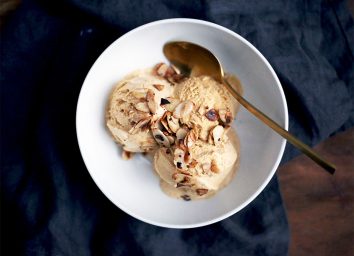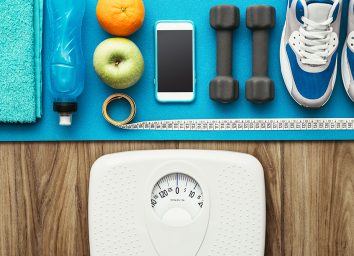25 Secrets That Boost Metabolism

Marketers know we’re buying metabolism fixes: A quick Google search for “metabolism” turns out some 75 million hits—more than “obesity,” (10M) “weight loss,” (34M) and “Kate Upton” (1.4M) combined!<<
It’s obvious why: In theory, a “metabolism boost” is the easiest way to burn fat. Metabolism refers to the process by which your body converts the calories you eat into energy—the stuff that fuels everything you do, from growing your hair to breathing in air. The more efficiently you burn off those calories, the less fat you store without the need for a restrictive diet or intense exercise. Sounds awesome, right?
Yet as with any seemingly magical formula, the recipe for boosting metabolism is shrouded in myth—and misconceptions.
Until now.
Here are Eat This, Not That!’s sure-fire suggestions for melting away the pounds. And to discover even more stomach-slimming tips, check out these 55 Best Ways to Boost Your Metabolism!
Drink Matcha
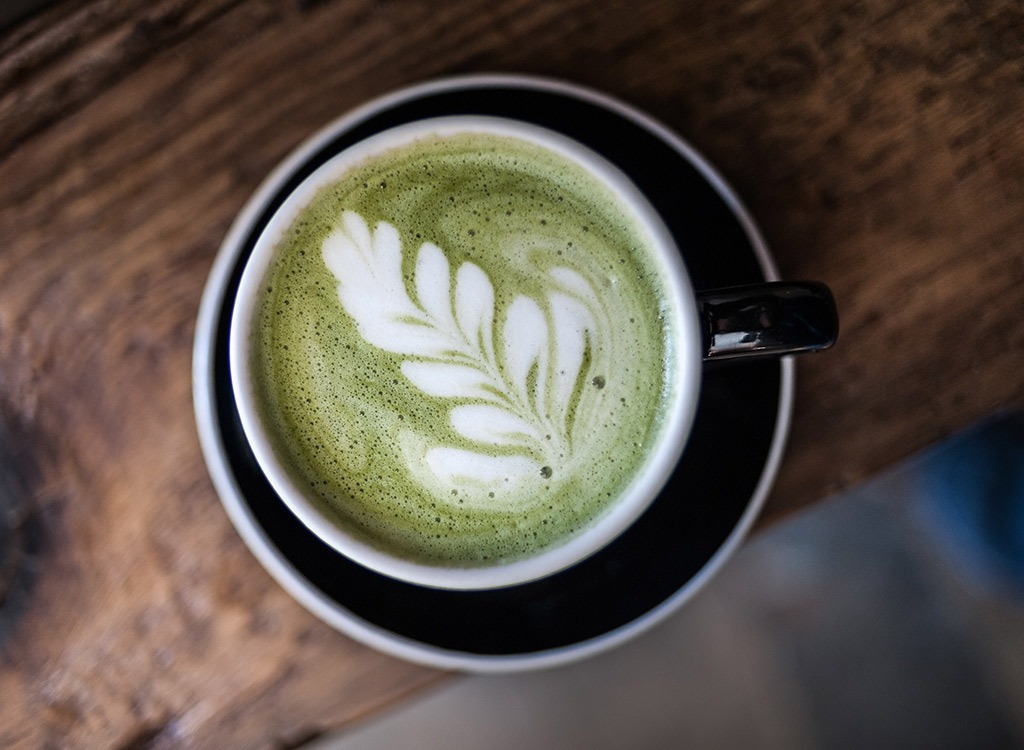
Derived from the Japanese tencha leaf and then stone ground into a bright-green fine powder, matcha literally means “powdered tea,” and it’s incredibly good for you. Research shows the concentration of epigallocatechin gallate (EGCG) in matcha to be 137 times greater than the amount you’ll find in most store-bought green tea. EGCG is a dieter’s best friend: studies have shown the compound can simultaneously boost the breakdown of fat and block the formation of belly-fat cells. One study found men who drank green tea containing 136 mg EGCG—what you’ll find in a single 4 gram serving of matcha—lost twice as much weight than a placebo group and four times as much visceral (belly) fat over the course of 3 months. Need one more reason for tea-time? A single serving sneaks in 4 grams of protein—that’s more than an egg white! Matcha is just one of the 22 Best Teas for Weight Loss!
Take a Vitamin D Supplement
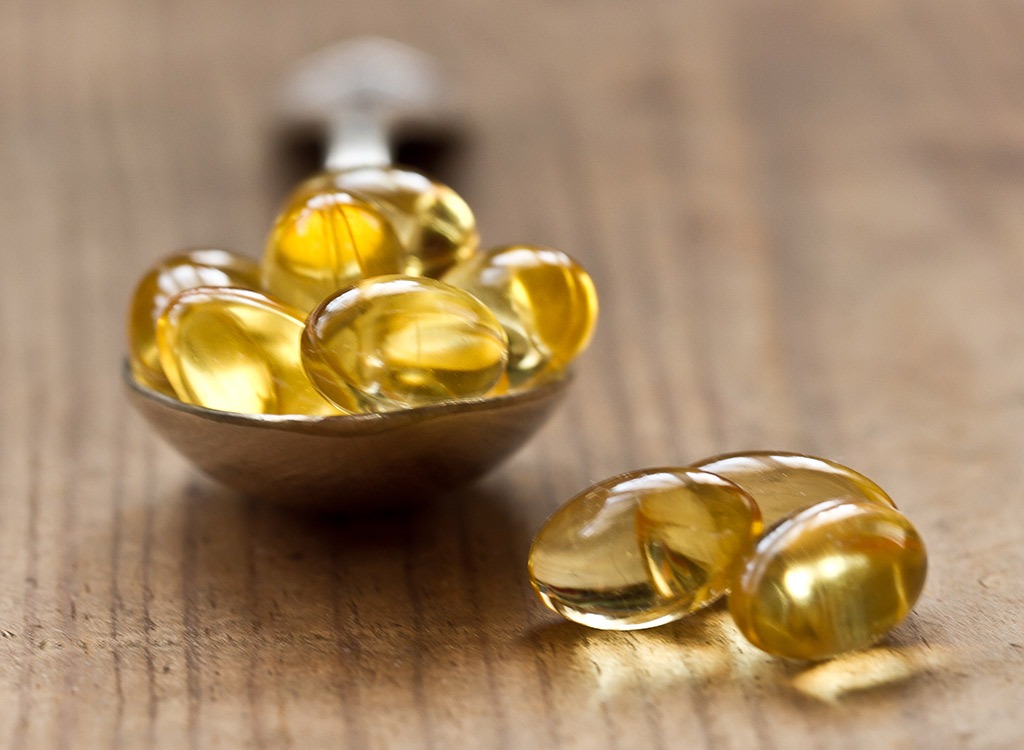
If there’s one supplement most Americans should be taking, it’s vitamin D. It’s essential for preserving metabolism-revving muscle tissue, but researchers estimate that a measly 20 percent of Americans take in enough through their diet. While you can nail 90 percent of your recommended daily value (400 IU) in a 3.5-ounce serving of salmon, a daily supplement makes a lot of sense. Other good dietary sources: tuna, fortified milk and cereal, and eggs.
Eat Organic Beef, Eggs and Dairy
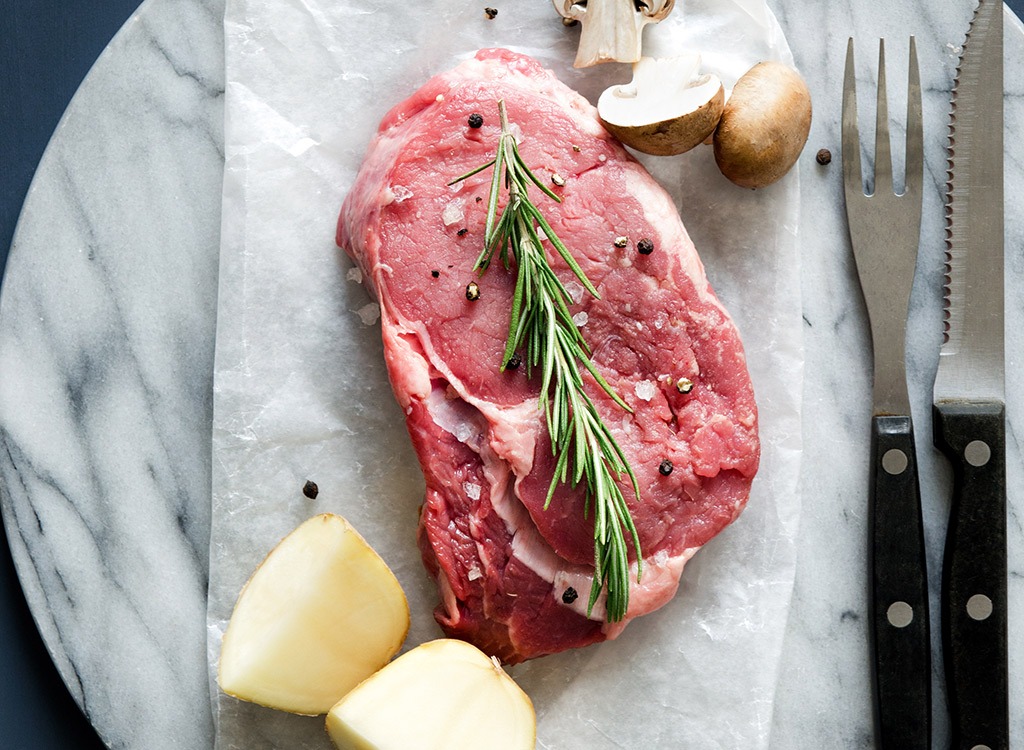
“Hormones dictate how our body utilizes the energy we give it,” says nutrionist Lisa Jubilee. “Between our reproductive, thyroid and growth hormones, appetite, insulin and hunger hormones — leptin and ghrelin — our bodies have to perform a tricky balancing act to keep us lean, energized and viable reproductive beings.” Those tasks have become much more difficult because of the hormone residues we consume via cage-raised foods. If you want to give your metabolism a leg up, Jubilee says, switch to organic, grass-fed, pasture-raised beef, eggs and dairy products, thereby avoiding those nasty hormones at mealtime. And if you are looking to improve your diet and shed a little bit of weight, our advice is to take it slow so you actually keep it off. Here are 50 Ways to Lose 10 Pounds—Fast, but not too fast!
Eat Three Square Meals, Not More
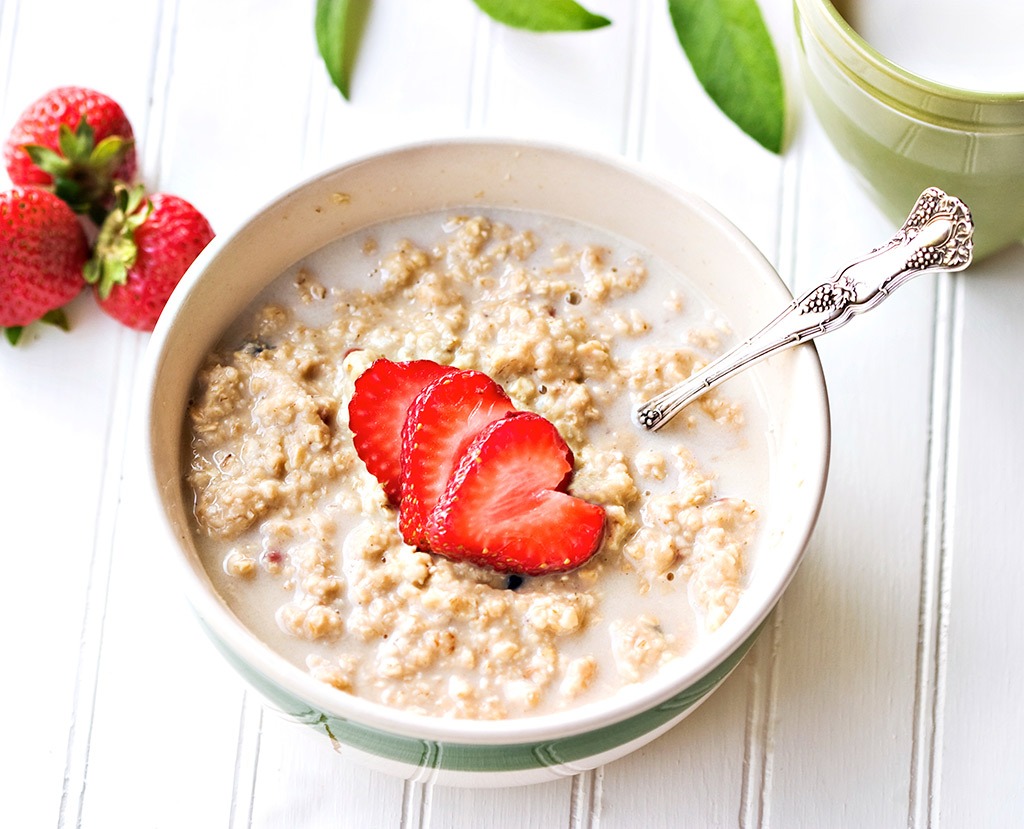
Bodybuilders have long sworn by eating every few hours to keep their muscles fueled, but don’t discount the weight loss potential of three squares a day. A study in the journal Hepatology put two groups of men on weight-gain diets. One group divided the calories among three small meals with snacks in between while the second group ate the same number of calories in three square meals. While both groups gained weight, researchers found that belly fat—the dangerous kind that increases heart-disease risk—only increased in the high-meal frequency group.
Skip Diet Soda
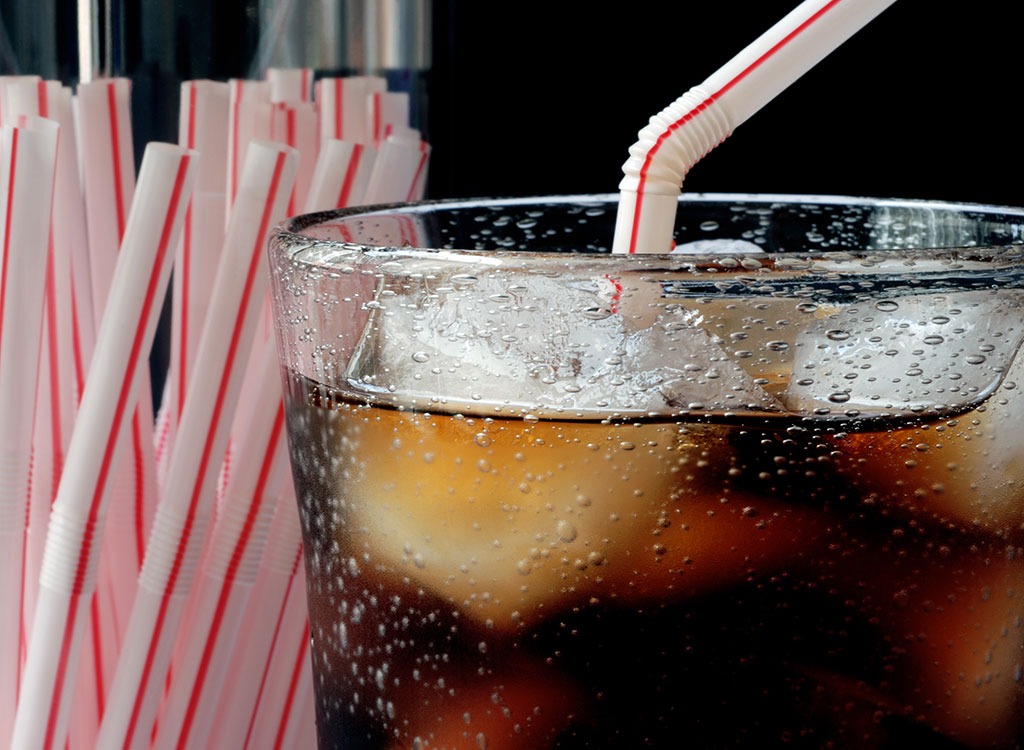
Yeah, yeah, it has zero calories, but drinking diet soda may yet play havoc with your goal of having a flat belly. Research published in the journal Trends in Endocrinology & Metabolism shows that artificially sweetened beverages may screw up the body’s normal metabolic response to sugar, actually increasing appetite! Increasingly, diet drinks are being linked with weight gain, metabolic syndrome and a host of other ills. (Check out what happens to your body when you give up soda.) Best to give them a wide berth. But if you really crave something sweet…
Nibble on Chocolate
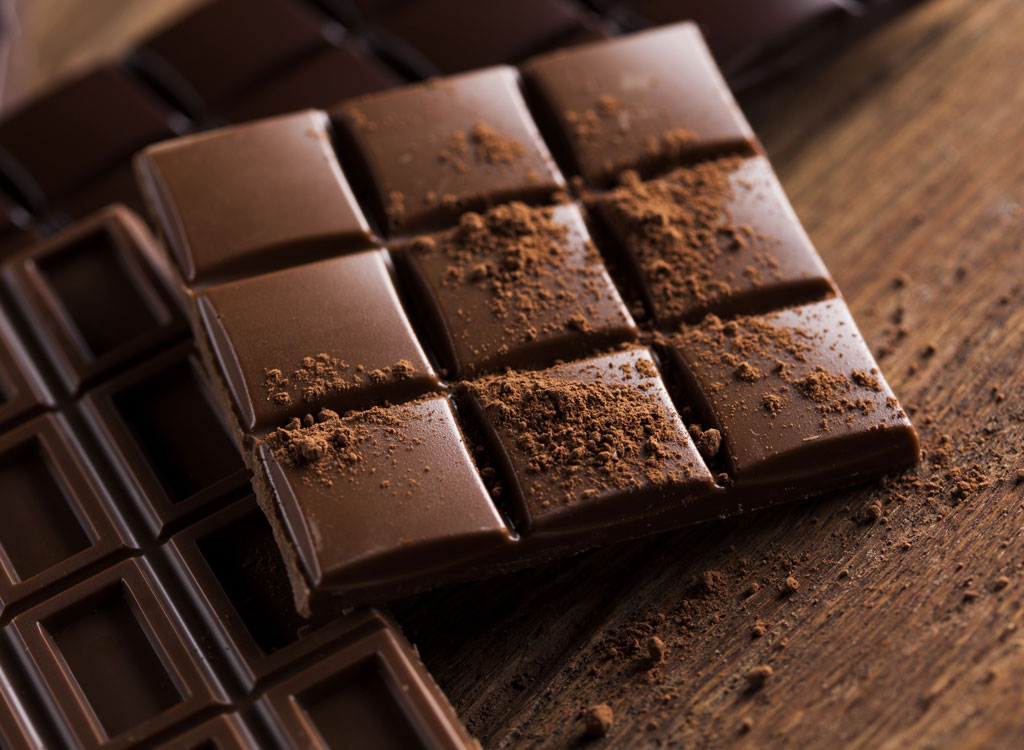
In a study by Swiss and German researchers, lucky participants ate about 1.5 ounces of dark chocolate daily for two weeks. Ultimately, these chocolate nibblers had lower stress-hormone levels and a more regulated metabolism than a control group. Scientists speculate that chemicals in cocoa, such as flavonoids, play a role in regulating metabolism by alleviating stress that can cause your fat-burning engines to go on the fritz. Should you think this is a license to go wild, take heed: We’re talking small amounts of high-quality dark chocolate. Researchers say 1.5 ounces is enough.
Choose Whole Grains
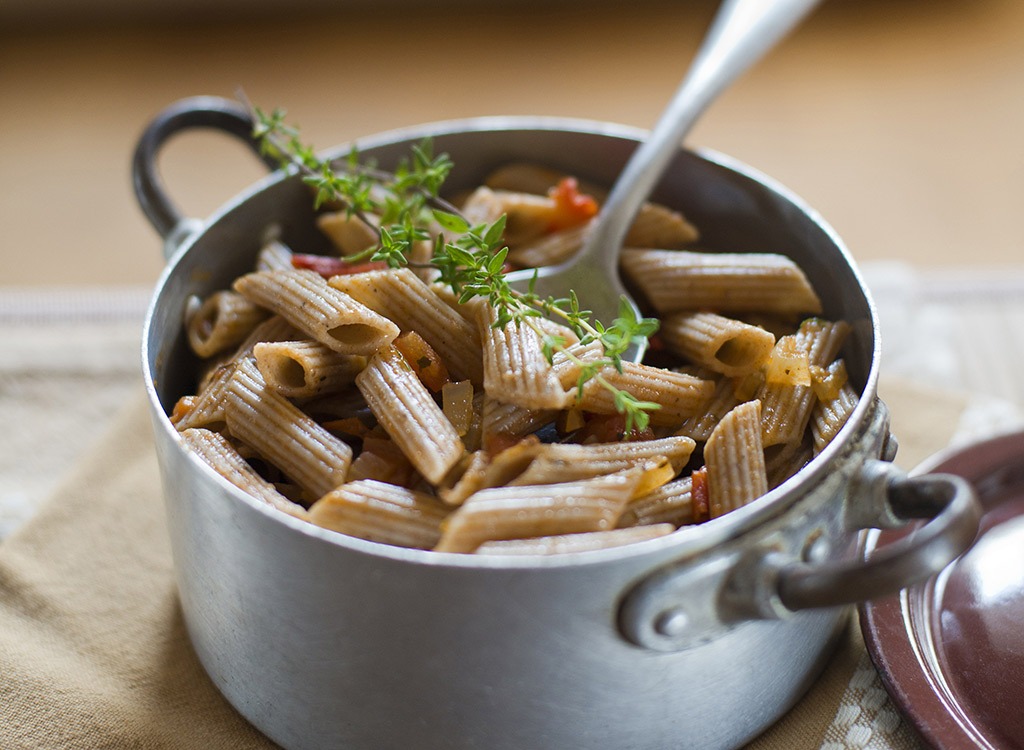
It takes the body extra effort to break down whole grains than more refined and processed grains, like the flour ordinarily used to make bread and pasta. You can help keep your metabolic rate elevated by consuming foods that the body has to work harder to digest. Your go-tos are whole foods that are also rich in fiber. We’re talking brown rice, oatmeal, quinoa, sprouted grain breads and more of the Best Complex Carbs for Weight Loss.
Stand at Work Three Hours a Day

Ideally, we sleep about eight hours for every 24. Most people spend another seven to ten hours sitting at their desk. That means most of us spend the overwhelming majority of our time sedentary. Our bodies weren’t designed for this level of inactivity — most of humans’ evolutionary history involved being active, searching for food and fuel. Nutritionist Lisa Jubilee says that one way to burn more calories daily is to stand more and sit less. She cites a British study which found that standing at work burned 50 more calories per hour than sitting. If that doesn’t sound like a lot, consider this: If you stand for just three hours of your day, in one year you’d expend more than 30,000 extra calories — which amounts to about 8 lbs of fat!
Eat Carbs at Night
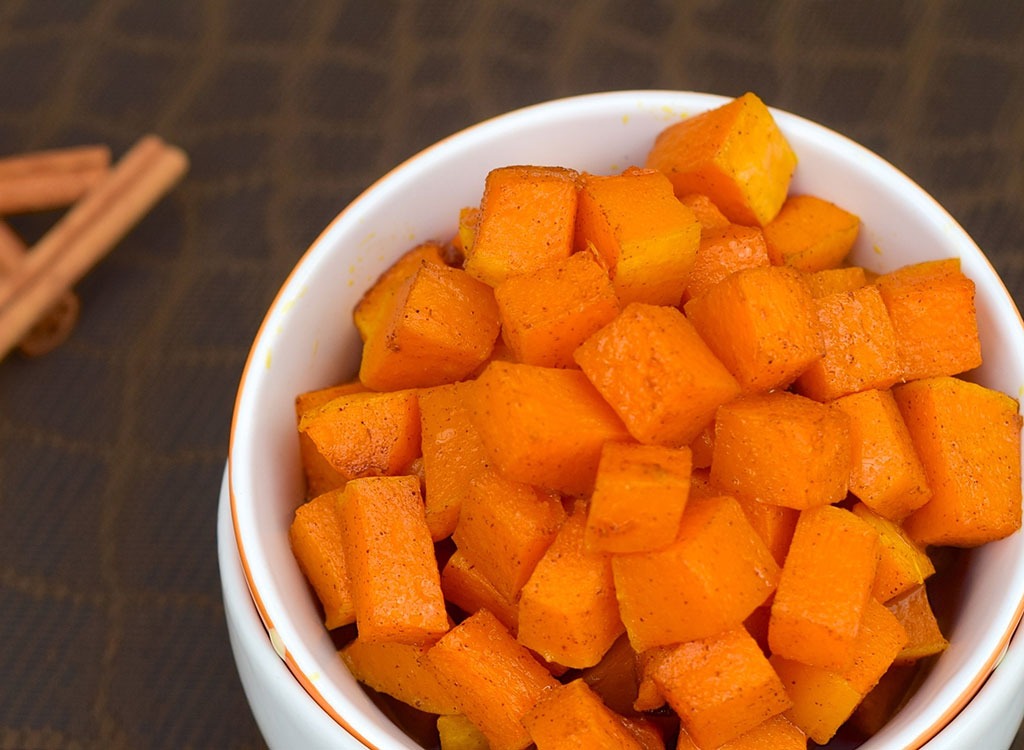
The theory makes sense: Your body burns carbs for energy, but if you eat them before you go to sleep, your body just stores them as fat. But the pastanomics of weight loss aren’t so simple. One study in the European Journal of Nutrition put two groups of men on identical weight loss diets. The only difference? Half of the group ate their carbs throughout the day while the second group reserved carbohydrates for nighttime. The result? The nighttime carb group showed a significantly higher diet-induced thermogenesis (meaning they burned more calories digesting their food the next day). Moreover, the daytime-carb group showed increased blood sugar levels. Another study in the journal Obesity saw similar results. Nighttime carb eaters lost 27 percent more body fat—and felt 13.7 percent fuller—than those on the standard diet.
Drink Full-Fat Milk
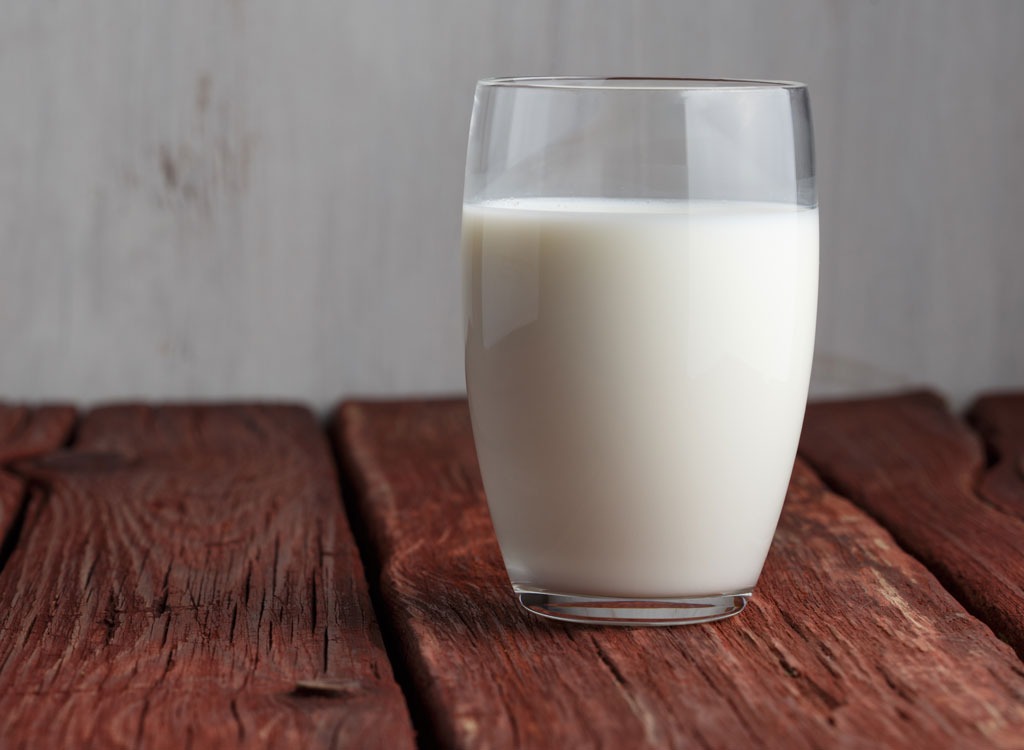
Studies conducted at The Nutrition Institute at the University of Tennessee suggest that consuming calcium — which milk has plenty of — may help your body metabolize fat more efficiently. Other studies have shown that increased calcium intake from dairy products (though not from supplemental calcium carbonate) caused study participants to poop out more fat as opposed to it sticking around on the body. See more of our picks for the 20 Best Full-Fat Foods for Weight Loss!
Start with Protein
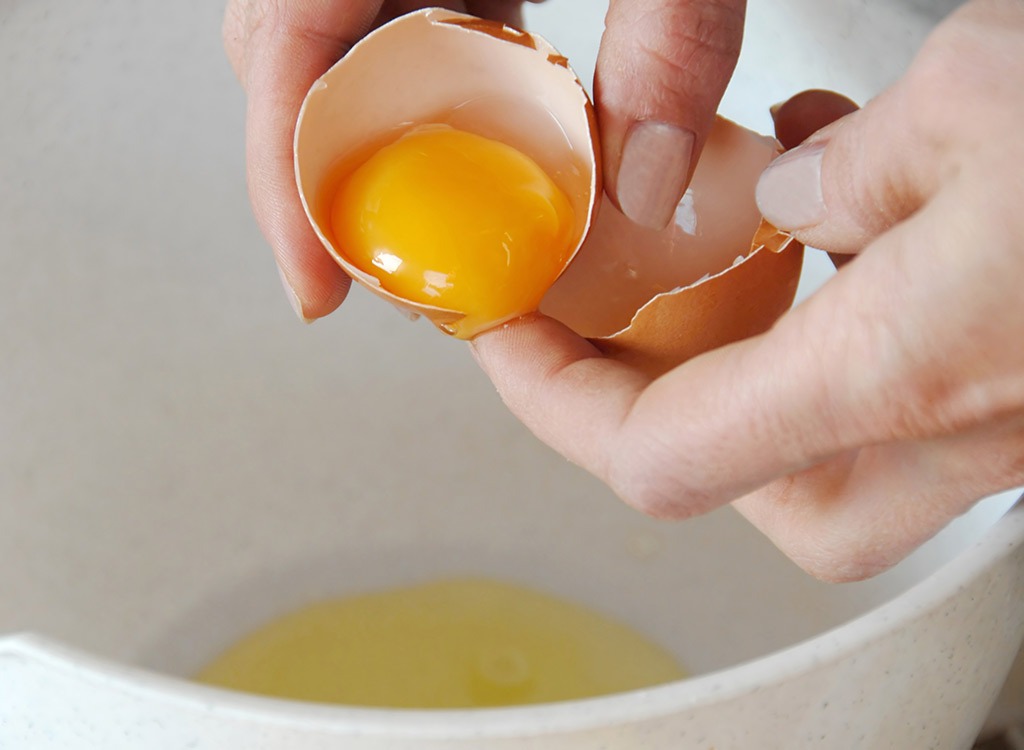
Start your day with lean protein, which burns twice as many calories during digestion as fat or carbs. But don’t stress about squeezing it in before 9 am. Just be sure to steer clear of the 41 Worst Supermarket Breakfast Foods in America.
Keep Your Room Cool

We still like to think of sweat as our fat crying—-especially when we’re raising our temperature through Bikram yoga or some other “hot” workout—but striking new research published in the journal Diabetes suggests cooler temperatures may be optimal for weight loss. According to the study, simply turning on the AC at night may subtly transform a person’s stores of brown fat-—the “good” fat, stimulated by cold temperatures, that serves to keep us warm by burning through “bad” fat stores. Participants spent a few weeks sleeping in bedrooms with varying temperatures: a neutral 75 degrees, a cool 66 degrees, and a balmy 81 degrees. After four weeks of sleeping at 66 degrees, the men had almost doubled their volumes of calorie-burning brown fat. Cool!
Turn Your Surroundings into The Gym

“Interval training” simply means you alternate between periods of intense work and periods of recovery. “This places a high metabolic demand on the body, burns lots of calories in a short amount of time, produces a high post-workout calorie burn, and helps to improve one’s fitness level,” explains Kathleen Trotter, personal trainer and author of Finding Your Fit. “Plus, intervals are a fantastic workout regardless of your fitness level; you adapt the interval intensity to fit your current capacity.”
Follow an Anti-Inflammatory Diet

An anti-inflammatory diet—which is rich in fiber from whole grains, fruits, and vegetables—is the best way to jumpstart your metabolism according to Dr. Barry Sears, president of the non-profit Inflammation Research Foundation. “Harvard Medical School demonstrated [years ago] that one anti-inflammatory meal stabilized blood sugar levels and the two anti-inflammatory meals back-to-back decrease calorie intake by 46 percent.” Turn to these 20 Anti-Inflammatory Foods for Weight Loss so you know what to pile onto your plate!
Rev Up Your Cardio
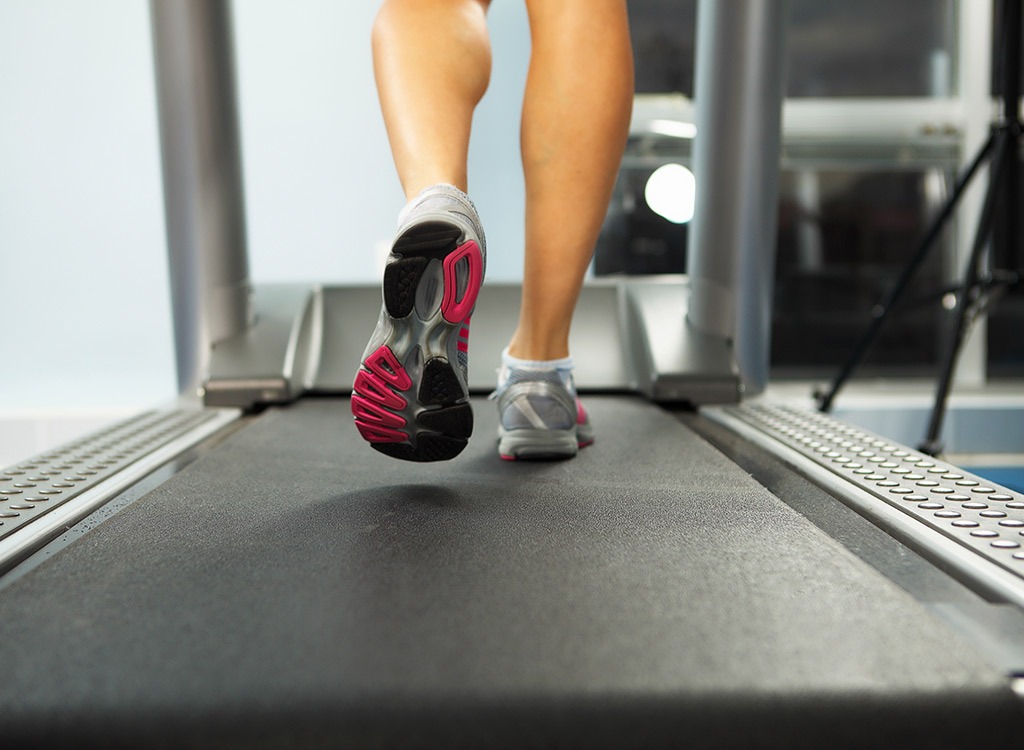
Get your cardio done first thing in the morning to rev up your metabolism, suggests Reggie Chambers, an NYC-based fitness specialist. “Do it before eating breakfast,” he says. “It can even be a low-intensity walk on the treadmill.”
Get In Your Supplements

Jeff Miller is a certified personal trainer with 20 years of experience in the fitness industry and says he takes the following supplements to boost his metabolism as needed: “First thing in the morning, I take cayenne to increase circulation. After a big meal, I take some vegetarian digestive enzymes. Before bed, I take plant-based vitamin D, magnesium, and some liquid herbs such as astragalus and echinacea. After I’ve been sick, I’ll take a bulb of organic garlic and eat it by itself. When I’m done training, I like to drink wheatgrass or spirulina.”
Sometimes, Feel Like a Nut

A 2003 study demonstrated that a low calorie diet that is rich in almonds could help increase weight loss. Not only do the good monounsaturated fats in almonds have an effect on insulin levels, say scientists, but also give dieters a full feeling, meaning that they are less likely to overeat. So stock your pantry with almonds, walnuts and these other best nuts for weight loss, as well as nut butters.
Dim the Lights

Want to have a faster metabolism? Install apps like f.lux or twilight on your devices. They reduce certain parts of the light spectrum as your bedtime approaches. Studies have shown that LED lights in phones disturb production of sleep hormone melanin. A purring metabolism is greatly helped by a good night’s sleep. So take your late night sexting down a notch or two…at least in terms of screen brightness.
Brew a Cup of Coffee …
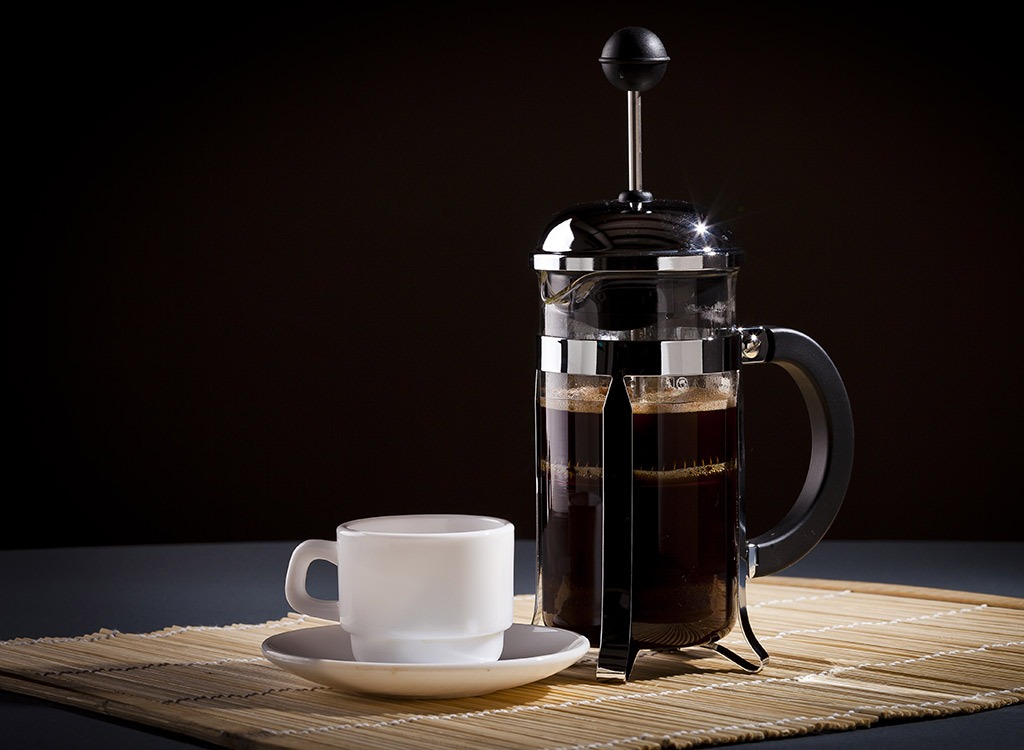
In addition to green tea, coffee is one of the best drinks for weight loss because it boosts your metabolism. The average metabolic rate of people who drank caffeinated coffee was 16 percent higher than that of those who drank decaf, according to a study published in the journal Physiology & Behavior. A cup of black coffee is a good choice for a pre-workout beverage, too: Researchers found that cyclists who took a caffeine supplement were able to ride about a mile farther than those who took a placebo. Make yours a venti and skip the sweeteners.
… But Not Ten
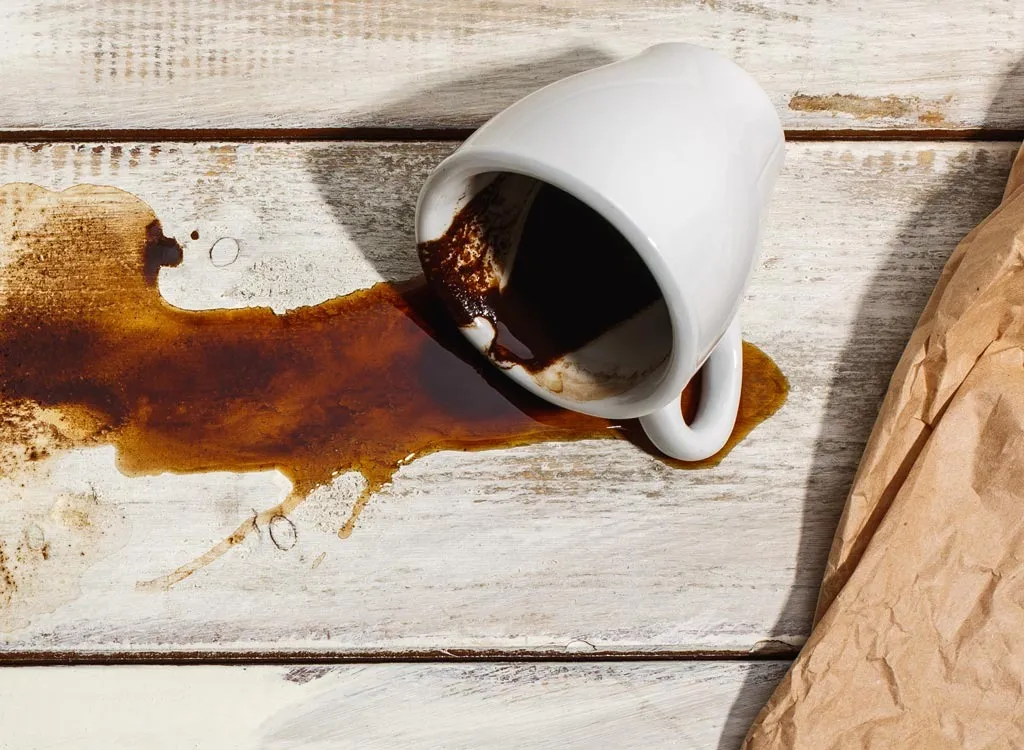
Have a few cups of java for a metabolism boost, but if you’re never seen without a mug at your lips, that could work against you, says nutritionist Amy Shapiro. Caffeine is a natural appetite suppressant. If you’re constantly consuming it, you may not eat much — or realize how hungry you really are — until you get home for dinner. “Not eating enough throughout the day can make your metabolism sluggish,” she says. “By the time you eat dinner, instead of immediately using that food for energy, your body is aggressively storing it as fat, just in case it will be deprived again.”
Quit Stressing

Stress can actually cause the body to metabolize food more slowly, according to research published in the journal Biological Psychiatry. To make matters worse, the food we crave when we’re stressed out tends to be fatty and full of sugar. Researchers say that the combination of high-cal cravings and a stress-induced, snail-paced metabolic rate can result in significant weight gain. To keep your metabolism running strong, fight stress with laughter. Research shows that smiling and laughing causes levels of stress hormones to diminish.
Stop Napping

Research has found that people burn fewer calories when they sleep during the day and log their waking hours after the sun’s gone down. To come to this finding, University of Colorado at Boulder researchers studied 14 healthy adults for six days. For two days, study participants slept at night and stayed awake during the day, then they reversed their routines to mimic the schedules of night owls. When participants slept during the day, researchers found that they burned 52 to 59 fewer calories than they did while catching their zzz’s in the evening—likely because the schedule messed with their circadian rhythm, the body’s internal clock that plays a major role in metabolism function. If you have no choice but to sleep during the day, aim to cut 50-60 calories from your daily diet.
Order Chili
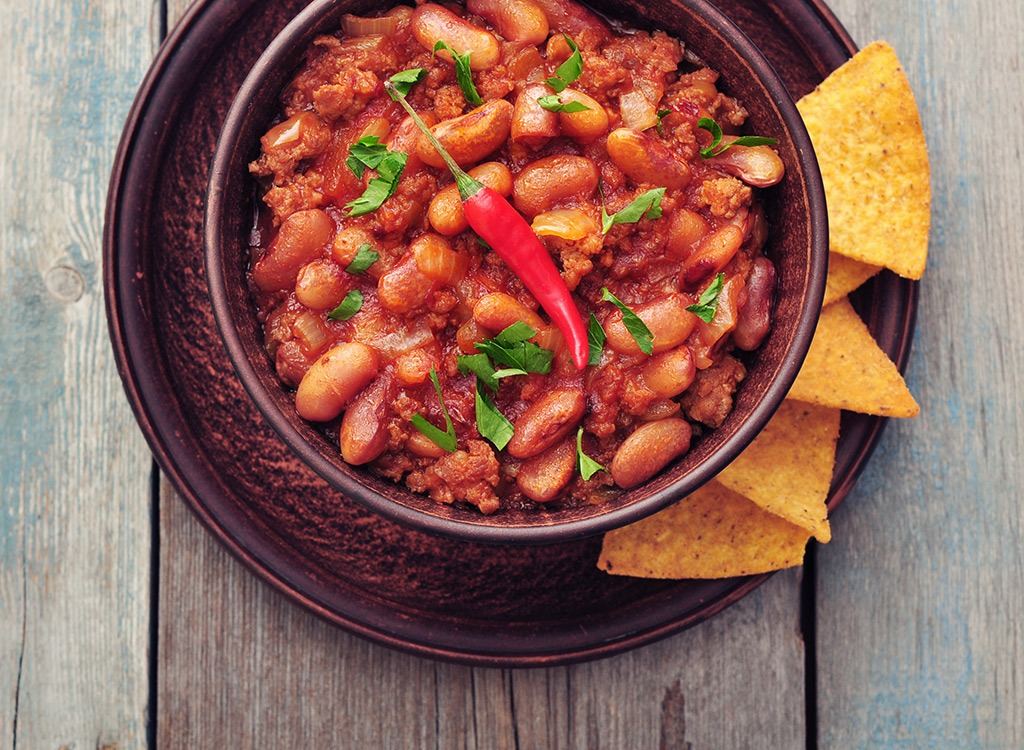
Think of every bean as a little weight-loss pill. One study found that people who ate ¾ cup of beans daily weighed 6.6 pounds less than those who didn’t even though the bean eaters consumed, on average, 199 calories more per day. The magic is in the perfect combination of protein and fiber: studies show that those who eat the most fiber gain the least weight over time, and that eating fiber can rev your fat burn by as much as 30 percent. Aim for about 25 g a day—the amount in about three servings each of fruits and vegetables.
Plan a Weekly Cheat Meal
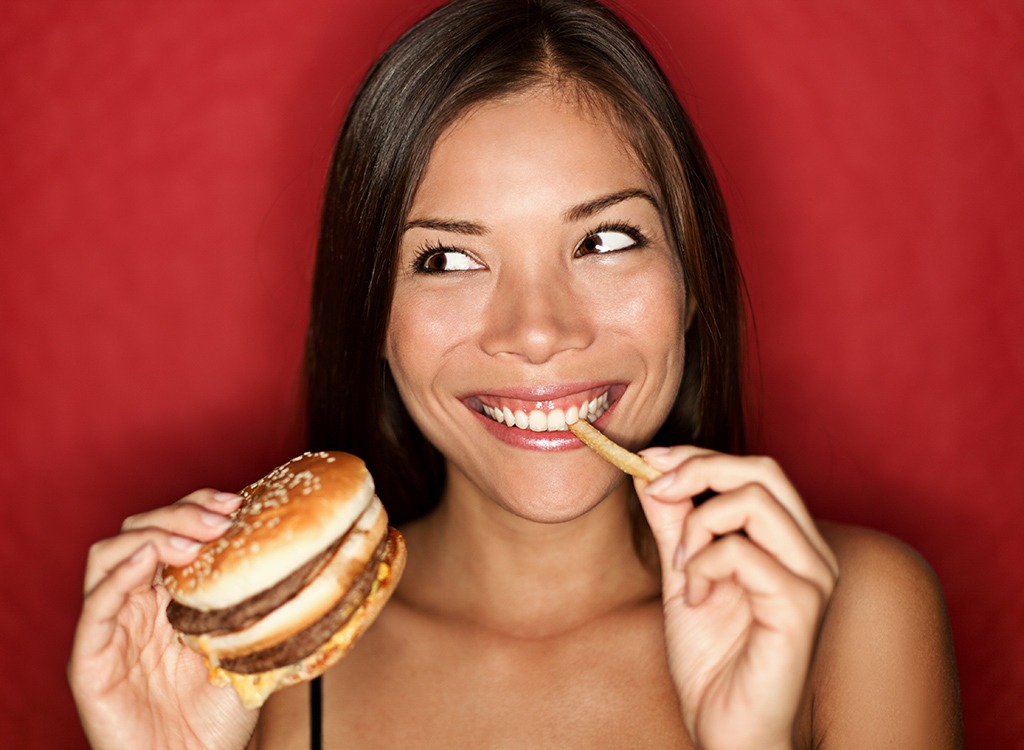
Experts agree that having a weekly cheat meal can actually help you reach your weight loss goals. Having a strategy is key. “By planning your cheat meal, you know what you’ll be eating and can cut a few extra calories earlier in the day,” says Jim White, RD, ACSM Health Fitness Specialist and owner of Jim White Fitness & Nutrition Studios. This also allows you to really pick a favorite food instead of wasting calories on something you didn’t enjoy.” Amy Shapiro, MS, RD, CDN, Real Nutrition NYC, gives similar advice. “Pick your poison. If you’re going out, pick your splurge. Are you going to dig into carbs — like a bread basket or pasta — or dessert? Or are you planning on tossing back a few cocktails?” She urges cheaters to avoid consuming all three of those common categories at once sitting. “Focus only on one,” she says, adding that by saving the others for another time you can “enjoy without going overboard.”
Drink Water when You Wake Up

For nutritionist Lisa Jubilee, one of the best and cheapest ways to give your metabolism a jolt is to drink water (she suggests 20 to 32 ounces) shortly after waking. Why? During sleep, your body’s metabolic function slowed, and unless you woke up in the middle of the night to swig some water, it didn’t receive any fluids. Jubilee suggests completely rehydrating before stressing your body with any other food or drink. “My clients who have implemented this report less bloating, more energy and a smaller appetite,” she says. Her motto for getting your inner furnace stoked and ready for the day: “Rehydrate, then caffeinate!”
